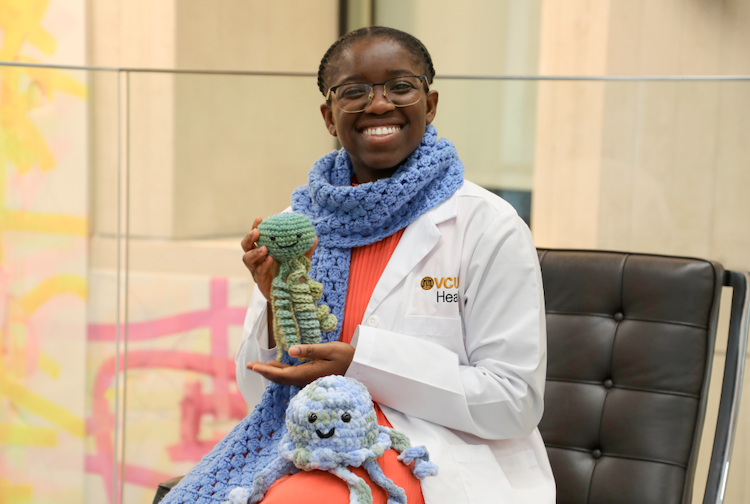
VCU researchers receive $2.1 million grant to investigate genetic markers for schizophrenia
March 06, 2017
Monday, March 6, 2017 The National Institute of Mental Health has awarded a $2.1 million grant to Virginia Commonwealth University’s Center for Biomarker Research and Precision Medicine to study potential epigenetic causes of schizophrenia. The purpose of the four-year grant is to study DNA methylation as it relates to the development of schizophrenia. Methylation is a process that involves small changes to DNA that can be inherited or be the result of environmental factors such as smoking, dietary habits and medical treatment. “DNA methylation changes over time,” said principal investigator Karolina Aberg, Ph.D., associate director of the Center for Biomarker Research and Precision Medicine and assistant professor at VCU School of Pharmacy. “Age is one aspect that changes methylation patterns, but habits like what you eat and drink and how much you exercise can also have an effect.” People who have schizophrenia tend to have lifestyle differences that are difficult to control for. “For example, schizophrenia patients tend to smoke more,” Aberg said. “So it is difficult to say if the DNA methylation causes schizophrenia or if schizophrenia changes DNA methylation patterns.” Aberg and her research team hope to unravel that mystery by using high-throughput DNA sequencing technology to study blood and brain tissue samples. The team has 395 infant blood spots from the Karolinska Institute, a Swedish medical university, that were collected before the onset of schizophrenia. The sample allows for the study of case-control differences without having disease as a confounder. The researchers will merge the information they obtain from the infant blood samples with information from almost 1,500 blood samples from Swedish adults and 400 postmortem brain tissue samples. The samples are divided between schizophrenia patients and individuals who did not have the disease. The project involves measuring the status of approximately 28 million possible methylation sites in the human genome using the DNA sequencing technology. “We are hoping to identify methylation markers in blood that are associated with schizophrenia,” Aberg said. The blood markers could eventually have clinical value and be used to predict schizophrenia risk. “If those markers are also correlated with markers in brain tissue, it could tell us something about the function and why the risk is there.” The Center for Biomarker Research and Precision Medicine, which is housed in VCU School of Pharmacy, aims to alleviate the burden of mental illness by using genomic technologies to identify molecular markers that can be used to develop new medications and tailor treatments to individual patients. Schizophrenia is a devastating psychiatric disorder, and Aberg expects that ultimately her research will lead to better identification methods and treatments for people who are diagnosed with the disease. Virginia Commonwealth University is a major, urban public research university with national and international rankings in sponsored research. Located in downtown Richmond, VCU enrolls more than 31,000 students in 225 degree and certificate programs in the arts, sciences and humanities. Seventy-nine of the programs are unique in Virginia, many of them crossing the disciplines of VCU’s 13 schools and one college. The VCU Health brand represents the health sciences schools of VCU, the VCU Massey Cancer Center and the VCU Health System, which comprises VCU Medical Center (the only academic medical center and Level I trauma center in the region), Community Memorial Hospital, Children’s Hospital of Richmond at VCU, MCV Physicians and Virginia Premier Health Plan. For more, please visit www.vcu.edu and vcuhealth.org.About VCU and VCU Health



